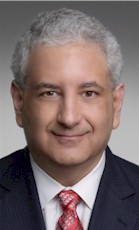
The introduction of technology has had a dramatic influence on hotel sales and marketing strategies and tactics. Revenue management and control of distribution channels now dominate the time spent by lodging industry marketing personnel. These changes have impacted the dollars spent at the property level within the Sales and Marketing Department. To gain a better understanding of how U.S. hotels are deploying their unit-level marketing dollars, and the fees they pay to franchisors, PKF Hospitality Research examined Sales and Marketing Department expense data from its Trends® in the Hotel Industry database of annual operating statements. READ MORE



















